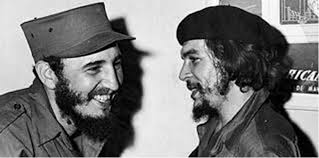Fidel Castro, born in 1926, was a Cuban revolutionary and politician who profoundly shaped his nation’s history and left an indelible mark on global politics. Rising to power in 1959 after leading a successful guerrilla campaign against the U.S.-backed dictator Fulgencio Batista, Castro established a socialist state aligned with the Soviet Union, just 90 miles from the shores of the United States.
Castro’s rule was characterized by significant social reforms, including improvements in healthcare and education. Under his leadership, Cuba achieved one of the highest literacy rates in the world and developed a healthcare system that gained international recognition. However, these achievements came at the cost of political freedoms, with Castro’s government suppressing dissent and maintaining a one-party state.
The Cuban leader’s defiance of the United States made him a symbol of anti-imperialism for many in the developing world. His regime survived numerous assassination attempts, the failed Bay of Pigs invasion in 1961, and outlasted ten U.S. presidents. The Cuban Missile Crisis of 1962, where Castro allowed Soviet nuclear missiles on Cuban soil, brought the world to the brink of nuclear war.
Economically, Castro’s policies led to both successes and hardships. While social inequality decreased, Cuba’s economy suffered, especially after the fall of the Soviet Union in 1991. The U.S. trade embargo, imposed in 1962, further strained the country’s resources.
Castro’s influence extended beyond Cuba’s borders. He supported leftist movements in Latin America and sent Cuban troops to conflicts in Africa. This internationalism bolstered his reputation among anti-colonial forces but also drew criticism for interfering in other nations’ affairs.
In 2008, citing health issues, Castro stepped down as president, handing power to his brother Raúl. He remained an influential figure until his death in 2016 at the age of 90. His passing marked the end of an era, prompting reflections on his complex legacy.
Fidel Castro remains a polarizing figure. To his supporters, he was a champion of socialism and a bulwark against U.S. imperialism. To his critics, he was a dictator who trampled on human rights and stifled economic progress. Regardless of perspective, Castro’s impact on Cuba and the broader geopolitical landscape of the 20th century is undeniable.
newshub



Recent Comments